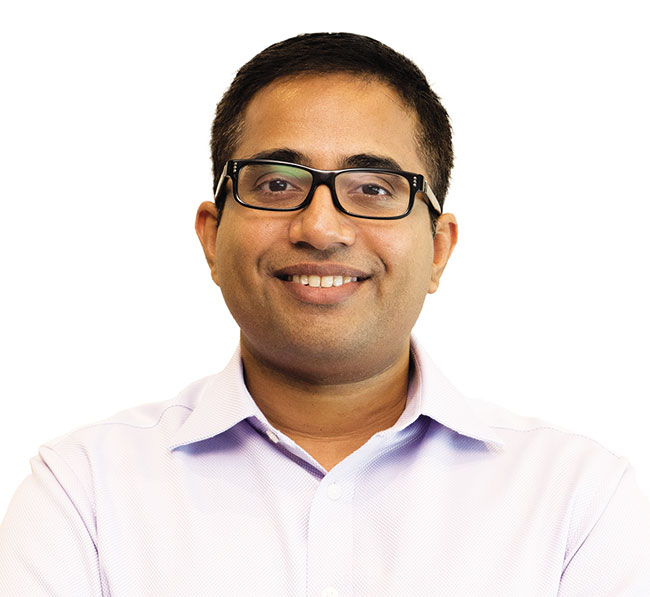Dekalb plants smart seeds for higher productivity rate
 With Genuity seeds, Dekalb is providing Vietnamese farmers with a solution to increase yields and ensure a consistent quality of grain. But does Dekalb provide farmers with the whole package, meaning all the inputs in the cultivating process as well as an outlet for their products?
With Genuity seeds, Dekalb is providing Vietnamese farmers with a solution to increase yields and ensure a consistent quality of grain. But does Dekalb provide farmers with the whole package, meaning all the inputs in the cultivating process as well as an outlet for their products?
We are creating a whole ecosystem. On the input side are fertiliser companies, banks that want to give affordable financing to farmers, and insurers that want to give insurance to farmers. On the output side, we have partnerships with local feed mills, or the rice-to-corn partnership, which we’re looking to expand under the supervision of the Ministry of Agriculture and Rural Development (MARD) over the next three to five years. We’re looking to do more of those.
Through the entire ecosystem we have higher productivity, better quality grains, and the risk to farmers is reduced. It’s all about putting farmers in the centre and asking what the challenges that they face are, and then answering those questions.
Can Vietnam’s genetically modified corn be exported?
Yes. These products have been approved and have been planted in many parts of the world for many years. However, at present, Vietnam is the biggest importer of corn in the region, so when Vietnam can start exporting corn depends on how soon farmers are educated, how soon they have access to these hybrids, and how soon a competitive environment is created for them to produce at a level allowing for export. The country is going to see some very interesting developments in five to ten years.
Genuity seeds protect corn from weeds and insects, the major causes of crop loss, lower productivity, and quality, but those are not the only problems facing Vietnamese farmers. Many regions in Vietnam experience droughts and soil salinity. Does Dekalb have solutions for these regions?
Yes we have that in our breeding programme. Whenever we launch any product anywhere we carry out intensive testing in that particular region. We do that over three to four years. We want to make sure it can withstand post-flowering and pre-flowering droughts.
In the researching and marketing processes for our products we have had positive and visionary partnerships with both the MARD and the departments of Agriculture and Rural Development at the local level. We have conducted a lot of studies with the MARD, and work with the local departments of Agriculture and Rural Development in order to reach out to farmers.
Monsanto has been providing information technology tools to farmers in many parts of the world. Does the company plan to bring these solutions to Vietnam?
There are three ways to make agriculture more effective and sustainable. One is through basic breeding, meaning improving the germplasm so that the hybrid itself has a higher yield.
The second is better agronomic practices. How do we get higher yields per hectare? Either by high plant density, or making sure we have the right fertiliser, right temperature, and irrigation. The third way is by making sure every part of the field has maximised their yield.
Right now, at least for the next few years, our focus in Vietnam is to bring in the best germplasm. Then we will bring in the technology that uses the data that we generate to protect this yield.
What the stars mean:
★ Poor ★ ★ Promising ★★★ Good ★★★★ Very good ★★★★★ Exceptional
Latest News
More News
- Aussie Beef Mate Club launched in Vietnam (February 23, 2023 | 10:32)
- Dragon Capital Vietnam helps research Ca Mau Mangroves and Pu Mat National Park (November 22, 2022 | 13:46)
- Vietnam promotes sustainable agriculture (July 26, 2022 | 10:30)
- Mekong Delta Resilient Business Network officially debuts (May 09, 2022 | 09:07)
- Vietnam approves development scheme for seafood processing in 2021-2030 (August 18, 2021 | 16:45)
- Vietnam and Norway strengthen cooperation in marine aquaculture industry (May 22, 2021 | 16:24)
- HCM City develops support industry (March 12, 2018 | 15:25)
- Dekalb Vietnam delivers spring warmth to Son La farmers (February 05, 2018 | 16:26)
- Monsanto’s answer to Vietnam’s burgeoning nutrition demand (November 07, 2017 | 16:22)
- Dekalb Vietnam: four years of fostering talent (October 29, 2017 | 21:34)
















 Mobile Version
Mobile Version